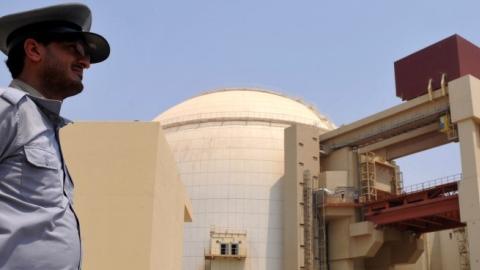If the "understanding" that Iran and the major world powers announced Thursday is turned into a final deal as envisioned, Iran will undergo an immediate economic boom. It will develop new commercial alliances, and its international standing will grow considerably. The deal will strengthen Iran quickly, significantly and irreversibly.
In return for this massive boost in its standing, Iran has offered the West only temporary and reversible concessions. Take, for example, the hardened site at Fordow, a bunker built under a mountain near Qom. President Obama originally called for shuttering the facility entirely, but the proposed deal keeps it open.
The major concession that Iran made with respect to the site was to agree not to introduce uranium into its centrifuges. Thus a fully-functional hardened facility remains available when, on the day of its choosing, Iran decides to make a dash for nuclear bomb.
America's closest allies in the region regard it as inevitable that such a day will come. They believe that the deal, as President Obama has structured it, gives the supreme leader an incentive to play nice for a short period of time, in order to pocket the early windfall profits from the deal. Afterward, however, he can break the terms of the deal, from a position of greater strength than ever, and the United States will have no effective recourse.
Regional powers such as Saudi Arabia thus feel threatened. They will not wait to see whether Iran plays nice for the long haul of the agreement. The Saudis have already signaled clearly that they have every intention to match Iranian nuclear capabilities. In other words, Obama's deal, far from stopping a regional arms race, has already set one off.
A strengthened Iran will also become harder to manage on the regional level. During the last year, while Secretary of State John Kerry was negotiating this deal, Iran became more deeply embroiled in the conflicts in Iraq, Syria and Yemen.
Why would we wish to see a power that still chants "Death to America" in a position of greater power and influence?

















